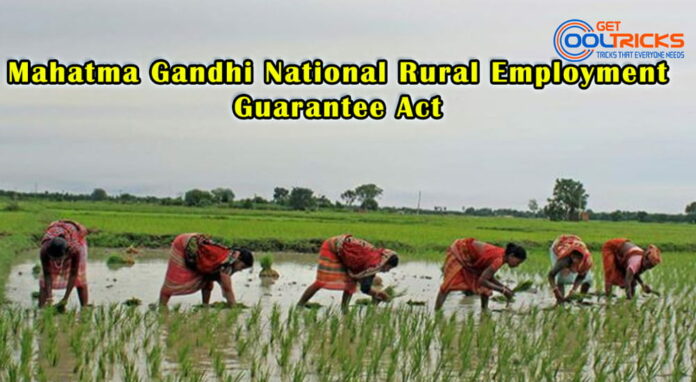Recent News
MGNREGA helped compensate 20-80% of the income loss incurred because of the Covid-19 induced lockdown, as per a study conducted by Azim Premji University across four states (Bihar, Karnataka, Maharashtra and Madhya Pradesh).
- However, 39% of the surveyed households didn’t get a single day of work in the Covid-19 year due to lack of adequate works being sanctioned/opened.
About MGNREGA
- MGNREGA is one of the largest work guarantee programmes in the world launched in 2005 by the Ministry of Rural development.
- The primary objective of the scheme is to guarantee 100 days of employment in every financial year to adult members of any rural household willing to do public work-related unskilled manual work.
- As of 2022-23, there are 15.4 crore active workers under the MGNREGA.
Legal Right to Work
- Unlike earlier employment guarantee schemes, the act aims at addressing the causes of chronic poverty through a rights-based framework.
- At least one-third of beneficiaries have to be women.
- Wages must be paid according to the statutory minimum wages specified for agricultural labourers in the state under the Minimum Wages Act, 1948.
Demand-Driven Scheme
- The most important part of MGNREGA’s design is its legally-backed guarantee for any rural adult to get work within 15 days of demanding it, failing which an ‘unemployment allowance’ must be given.
- This demand-driven scheme enables the self-selection of workers.
Decentralised planning
- There is an emphasis on strengthening the process of decentralisation by giving a significant role in Panchayati Raj Institutions (PRIs) in planning and implementing these works.
- The act mandates Gram sabhas to recommend the works that are to be undertaken and at least 50% of the works must be executed by them.
Constitutionality of MGNREGA
- MGNREGA provides a ‘right to work’ in accordance with Article 41 that directs the State to secure for all citizens the right to work.
- It also protects the environment through sustainable rural works, which is consistent with Article 48A which directs the State to protect the environment.
- Article 21 guarantees the right to life with dignity to every citizen of India, this act promotes dignity among the rural people through an assurance of livelihood security.
- Article 16 guarantees equality of opportunity in matters of public employment and prevents the State from discriminating against anyone in matters of employment on the grounds only of religion, race, caste, sex, descent, place of birth, place of residence or any of them.
- NREGA also follows Article 46 which requires the State to promote the interests of and work for the economic uplift of the scheduled castes and scheduled tribes and protect them from discrimination and exploitation.
- Article 40 mandates the State to organize village panchayats and award them with such powers and authority as may be necessary to enable them to function as units of self-government.
Significance of MGNREGA
- The programme is providing economic security and creates rural assets.
- It also helps in protecting the environment, reducing rural-urban migration and promoting social equity, etc.
- It focuses on the economic and social empowerment of women.
- It provides “Green” and “Decent” work.
- Works under MGNREGA help to address the climate change vulnerability and protect the farmers from such risks and conserve natural resources.
- The new system has resulted in the delay of wage payments to workers.
- According to some social activists, the new system was launched without addressing various technical issues.
- Many districts are unable to process wage payments.
- Inability to upload attendance data.
- After the implementation of the Public Financial Management System, it is necessary to release funds through a single account for the State MGNREGA, this has also complicated matters.
- Critics say that the Union government has implemented these changes unilaterally without studying the ground reality.
Way Forward
- There is a need for better coordination between various government departments and the mechanism to allot and measure the work.
- Some discrepancies in the payouts need to be addressed, too. Women in the sector, on an average, earn 22.24% less than their male counterparts.
- State governments must ensure that public work gets started in every village. Workers turning up at the worksite should be provided work immediately, without much delay.
- Local bodies must proactively reach out to returned and quarantined migrant workers and help those in need to get job cards.
- Gram panchayats need to be provided with adequate resources, powers, and responsibilities to sanction works, provide work on demand, and authorise wage payments to ensure there are no delays in payments.
- MGNREGA should be converged with other schemes of the government. For example, Green India initiative, Swachh Bharat Abhiyan etc.


